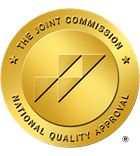While psychological assessments help our team determine mental health diagnoses, psychological testing is also a factor in proper diagnosis and treatment planning. Tests and assessments are two different services, but they’re related components of a psychological evaluation.
Psychologists use both testing and assessments to discover a diagnosis and a treatment plan. Tests can include data collection techniques such as questionnaires, checklists, or interviews. There is no pass or fail, and the tests are unique to each patient as each patient has different mental health symptoms and life experiences. It is important to know that there is no way to prepare for an assessment because it is about truth discovery – not a grade. The main goal is to establish the best treatment plan for you or a loved one.
Essentially, psychological testing is most beneficial because it helps to pinpoint symptoms. Thus, ruling out mental health issues that a person isn’t facing and putting more attention on issues that individuals may be more likely to be experiencing.
Psychological testing is divided into four primary types:
- Clinical Interview
- Assessment of Intellectual Functioning (IQ)
- Personality Assessment
- Behavioral Assessment
Tests need to be given by trained and certified licensed psychologists. Not every psychologist is qualified to administer these tests. Psychologists who administer psychiatric testing have experience in determining accurate diagnosis and treatment planning for individual cases and needs.
Types of Psychological Testing Materials
Psychologists may utilize a variety of psychological testing materials in order to accrue enough information to make an accurate diagnosis. Some types of psychological tests used include:
Rorschach Test: Many know this test as the inkblot test, which was designed in 1921 to help identify mental illness. The Rorschach is widely used to recognize PTSD with war veterans. There are no right or wrong answers with this; it is simply an analysis of the patient’s perception.
Intelligence or IQ Testing: Psychological testing is used to examine a variety of mental abilities and attributes, including achievement and ability, personality, and neurological functioning. IQ tests can help recognize intellectual functioning and cognitive ability. Common tests include the Wechsler Intelligence Scale for Children (WISC-III) and the Stanford-Binet Intelligence Scales
ADHD Testing: Certain psychological tests can not be done with blood work or brain scans, and this is one of them. Typically, ADHD testing is done by assessing a person’s symptoms through an evaluation which may include questionnaires, physical exams, and interviewing processes.
Psychological Testing at Comprehensive Care Clinic
Here at Comprehensive Care Clinic, psychological testing is conducted by our expert mental health professionals to ensure accurate information collection, analysis, and diagnosis. After testing and assessments, data collected in the evaluation will then be sent on to treatment specialists and case management services to determine individual treatment planning. Thus, ensuring that you receive the best care possible.
Learn more about what to expect in your psychological evaluation and testing by contacting us right on our website.
Contact
We are located at 720 S Dixie Hwy, Lantana, FL.
Call us or send us a message with our contact form, our team of professional clinicians will get back to you as soon as we review your submission




